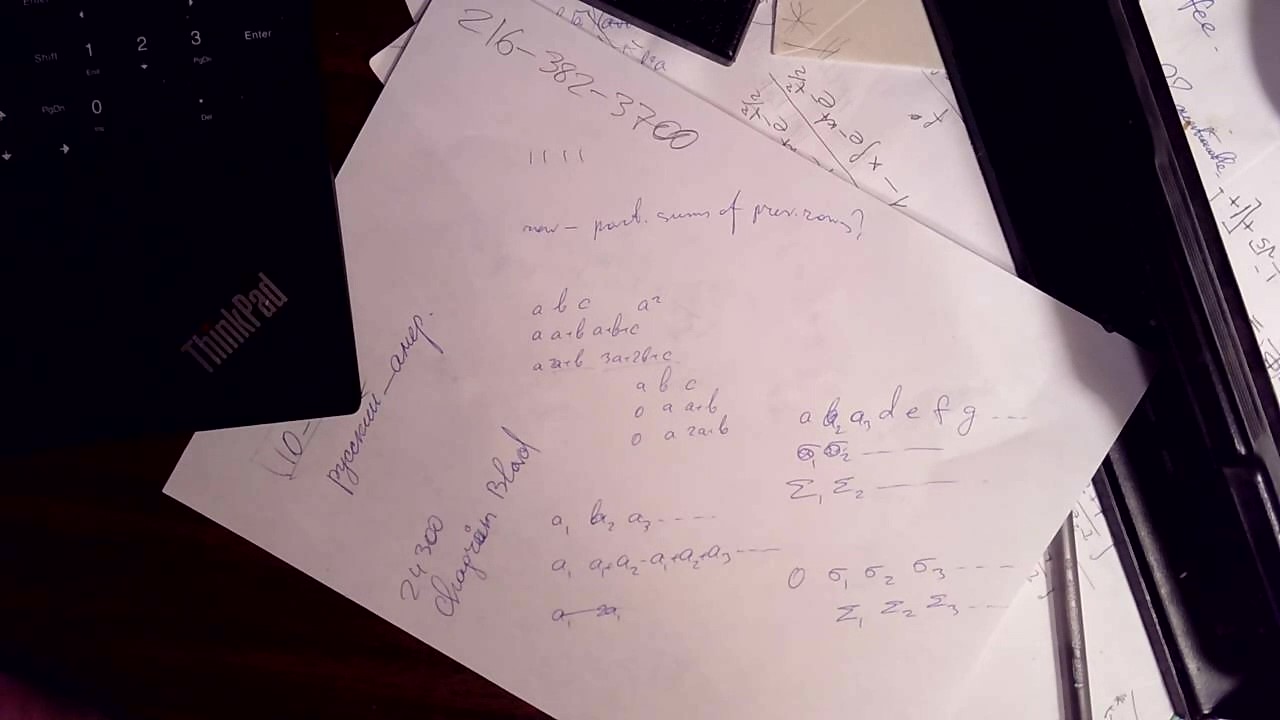I feel that after what I said I should offer something constructive here as well. Part of the problem with such movies is that the very act of verbalizing the thought process interferes with it quite severely. At the very least it significantly slows you down (take any computer program you ever wrote for computing something interesting, add the command to print the result after every operation, and watch it running). But that is not all. Interrupting a human thought is worse than interrupting a computer program because most of us are incapable of storing a SSW at the moment of interruption and retrieving it without error once the interruption is over. Also, when talking, we feel like we need to exhibit some clear logic in our transitions, while in fact many of them occur merely because one chain of thoughts suddenly outpaces the other, so we just switch to a more promising approach, and so on, and so forth.
So, simultaneous verbalization is a killer. What to do then? The only way out I see is to think it all through in the usual way and then post all that we wrote on paper in the order of writing with some short comments about the places that would look totally unclear to an outsider. That is like having a fossil record of your thought that tells about it as much as fragments of dinosaur bones about the terrible lizards themselves, which is not everything, but still quite a lot. Here is mine for the same problem. What I had in front of my eyes at the moment of writing was the screen with 4 first determinants, out of which only the last one really mattered, i.e., I was looking at
$$
\begin{matrix}
1&1&1&1
\\
1&2&3&4
\\
1&3&6&10
\\
1&4&10&20
\end{matrix}
$$
What I wrote is here:
 (the top scribbled line reads "row - part. sums of prev. rows?").
The rest should be clear from my comments.
(the top scribbled line reads "row - part. sums of prev. rows?").
The rest should be clear from my comments.
I feel like I have to add in the end that it doesn't mean that my thinking is better than that of Gowers. In fact, IMHO, compared to him, I am a hopeless imbecile sliding into senility. It merely means that I believe that the movie he posted does not (and, as conceived, could possibly not) reflect his true thinking. Also, to speak frankly, the Terry Tao's blog post titled "Does one have to be a genius to do maths?" reminds me of the phrase "Superman just helps now and then" in the famous cartoon. It is all fine, but if you watch that cartoon with a timer in hand, you'll realize that this "now and then" occupies about 90% of the shown events and the corresponding percentage in Terry's published papers is fairly close. As to his "generals", his account, if you translate it into layman language, reads to me "On my test I had to jump over the Empire State building and I almost knocked the spire off plus made a couple of unnecessary extra steps when landing, which showed to me that I need some more training before I attempt an unaided flight to the stratosphere". Disagree? Then try to pass his test yourself right now. You have enough information about what the questions were in his post, so just sit down and honestly write the answers to the best of your abilities. If you get happy with the result, let me know. I'm willing to take your word for it. But I give you mine that I failed miserably :-)
I am as curious about how great minds work as the OP, so if somebody has a good idea of how to observe that thought process, I will be happy to hear it. I also admire Tim Gowers for his attempt despite the fact that I still firmly believe that the way he approached it was hopelessly doomed from the beginning unless the true goal was very different from the proclaimed one.
